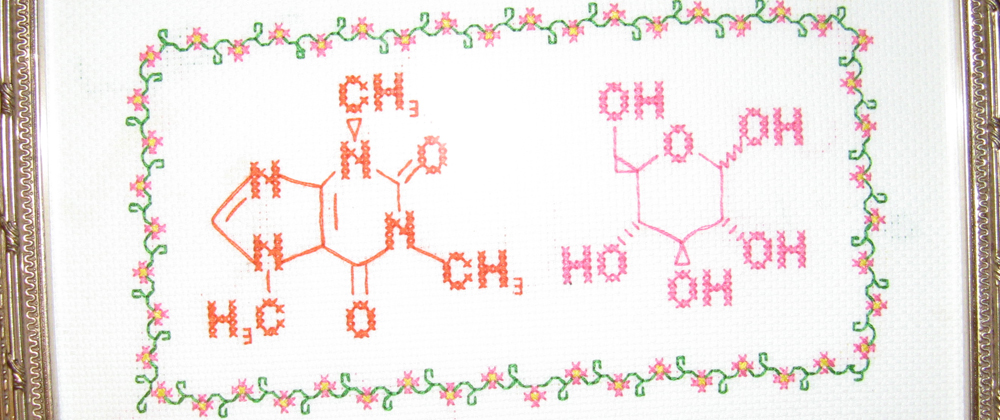Seen at Afarensis and Evolgen. Yeah, it’s another internet quiz, but it’s science-y and the graphics are really cool.
Does having too much fun undermine your credibility?
Over at Crooked Timber, John Quiggin lays into climate scientist Richard Lindzen. His post begins with reasons one might be inclined to take Lindzen’s views seriously:
Unlike nearly all “sceptics”, he’s a real climate scientist who has done significant research on climate change, and, also unlike most of them, there’s no evidence that he has a partisan or financial axe to grind.
But then, we find the 2001 Newsweek interview that gives Quiggin reason for pause:
Lindzen clearly relishes the role of naysayer. He’ll even expound on how weakly lung cancer is linked to cigarette smoking. He speaks in full, impeccably logical paragraphs, and he punctuates his measured cadences with thoughtful drags on a cigarette.
And Quiggin’s response:
Anyone who could draw this conclusion in the light of the evidence, and act on it as Lindzen has done, is clearly useless as a source of advice on any issue involving the analysis of statistical evidence.
I don’t want to get into a debate here about climate science (although the neighbors will likely oblige if you ask them nicely), nor even about the proper analysis of statistical evidence. Instead, I’d like to consider whether enjoying being a contrarian (or a consensus-supporter, for that matter) is a potential source of bias against which scientists should guard.
101 Movies meme.
I saw it at Julie’s. Below the fold is a list of 101 movies that the movie-intelligensia think you should have seen in order to have an intelligent discussion about film.
I have bolded the movies I have seen. As well (though I’m adding this part), I’m italicizing movies I have officially “seen” but know that I fell asleep in the middle of seeing them. (Most of these are post-sprog rentals.) And (one last modification), I’m putting an asterisk next to the ones that arguably have something like scientific content (even if peripheral).
Feel free to tell me, in the comments, which of the ones I haven’t seen I ought to move to the top of the viewing list.
Friday Sprog Blogging: teeth, tongues, and feedbacks.
Dr. Free-Ride: Hey, did you learn any more science today?
Younger offspring: Yes! More dinosaur stuff.
Dr. Free-Ride: What kinds of dinosaur stuff?
Younger offspring: Stuff about dinosaurs with sharp, pointy teeth.
Dr. Free-Ride: Is there another song?
Younger offspring: Yeah, but I’m not ready to teach it to you yet.
Hierarchies of misconduct.
In response to some interesting discussions with my students, I’m gearing up for a longish post on plagiarism’s place in the pantheon of scientific misconduct. To the extent that scientists can provide a clear definition of misconduct, it’s usually FFP: fabrication, falsification, and plagiarism. So, plagiarism is in there, but there’s frequently a sense that it’s not the same kind of ethical violation.
Before launching into my take on the issue, I thought it might be good to canvas the readership:
Email etiquette — shouldn’t some of this be obvious?
You may recall that a couple months ago the New York Times ran this piece on the habits of students who email their professors. Today, there’s something of a follow-up at Inside Higher Ed. The upshot seems to be that being polite, and especially not assuming an overly-familiar tone towards one’s professor simply because one is using email, is a good idea.
Given that, frequently, emails to one’s professor are intended to get something (information about an assignment, an extension, etc.), I would have thought this was kind of obvious. Is rudeness a good strategy for getting someone to give you something he or she doesn’t have to give you?
Perhaps, though, I overestimate the size of the “no-brainer” terrain on electronic communication. A blog-related example after the break:
Earthquake anniversary musings on what science doesn’t give us.
One hundred years ago today, 18 April 1906, a major earthquake (estimated to be 7.9 on the richter scale) nearly destroyed the city of San Francisco and did some serious damage to other communities in the area. Here in the Bay Area, there are various commemorations of the event taking place, and the local papers have all hit the vaults to dig up accounts of the quake, and of the fires that followed. (See, for example, the Chronicle’s “Great Quake” page. Of course, the U.S. Geological Survey has a page with great quake links, too.)
So in a very obvious way, you could say there’s lots of earthquake “awareness” in these parts. But the commemoration (some even call it a “celebration”, although no one is actually celebrating the destruction and deaths caused by the quake) has an uneasy feel to it.
A new banner has ascended!
I want to thank the many kind folks who submitted banners to my little contest. (Y’all are talented!) As you may have noticed, the winning entry is now gracing the blog.
The banner was designed by P.D. Magnus, who is not only a talented artist, but is also a fine philosopher of science (with his own weblog, of course). That comic book heroine graphic pretty much sealed the deal: though she is largely black and white (like our ethical ideals), she’s blasting through a universe that isn’t (and apparently throwing off some sparks in the process). I hope my blogging can live up to the promise of the banner.
Internet diagnosis of what ails me.
If this quiz is good enough for Tara, who am I to resist it? Especially since my eyes are no longer gummed shut.
The results from the culture below the fold.
Not out of the woods yet.
Perhaps when I said I was on the mend I was jumping the gun a little …



